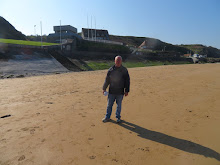I lost control of my blog in late 2020 and wrote about 60 posts in a nearby blog which now I can't locate. C'est le guerre. I seem to have found a tenuous route back to my original blog so copied straight from a FB post last year here are the half dozen most impactful books of the 18 I read last year. I like summarizing lists.
In 2021 I read 18 books, the most I'd read since before I retired five years ago. In the next two days I'll list the dozen books that had the most impact on me.
Fifteen of the books were histories of some sort, focusing upon WW2 and the American Revolutionary War mostly but I also read a book on the Black Plague of the fourteenth century, the French and Indian War and the Civil War. One book was a play--I try to read a play a year--one book was a biography of an artist with lots of pictures of his drawings so it went down easy, and one book was literature, not fiction but literature as I try to limit any made-up story I read to be a classic as long as I usually only read one fictional tale (non-play) per year.
1. As I lay Dying by William Faulkner, #1930. I love Faulkner. Everybody should read Faulkner. Such scathing disapprobation of the racial inequities in the South, but also such love for its uniqueness. And its strong women, what depictions of them! There's subtle humor that's occasionally laugh-out-loud in them, like when the poor white trash family in this book can't afford to take an adult family member to the doctor when he breaks his leg, they try to fix it themselves by making him a cast out of concrete. But first they have to persuade the store owner to break open a 25-pound bag to sell them 10 cents worth of cement, which he finally does to get this noisy, smelly out-of-town riff-raff out of his store. Having a cement cast does not do the injured family member any good, it turns out. I suppose it was worth a try, in a poor-man's canny self-help sort of way.
2. The Conquering Tide: War In The Pacific Islands 1942-44 by Ian W. Toll, #2015. My Dad fought in the Pacific War with the First Marine Division at two horrific battles and was training to be in on the invasion of the Japanese mainland in 1946, with its projected one million American casualties, before we dropped the bomb which finally caused beaten Japan to surrender already. Sorry, but not sorry at all about that.
3. Twilight of the Gods: War in the Western Pacific 1944-45 by Ian W. Toll, #2020. The Americans ruthlessly and relentlessly brought the ruthless and implacable Japanese to the peace table just before the Russians' cynical, opportunistic and cheap land grab garnered a prized Japanese island for themselves and communism. The ensuing Cold War would never have been the same. The section on the peaceful occupation of Japan itself made the book fascinating and worthwhile.
4. The British Are Coming! The War For America 1775-77 by Rick Atkinson, #2019. Volume One of the Revolution Trilogy by the Pulitzer Prize winning author of the Liberation Trilogy (WW2, ETO), which I read last year. I can't wait for volumes two and three to come out.
5. Stars In Their Courses, The Gettysburg Campaign June-July 1863 by Shelby Foote #1994, 1963. This is a "book" lifted straight out of Foote's magisterial Civil War Trilogy and deposited whole as a history of the Gettysburg campaign, with all of its star-fated actors, Lee who lost the war on the afternoon of Pickett's Charge, Meade who steadfastly defended his high ground that couldn't be taken but just as steadfastly refused to come out of his redoubt and attack a defeated foe and therefore consigned the nation to another two years of bloodletting, Reynolds who died after setting the Union line in its winning position, Ewell who hid behind the words "if practicable" in Lee's order of the first day to attack the reeling enemy and knock him off of his dominant position and therefore failed to unhinge the Union line while it was still possible and assured the loss for the Confederacy of the key battle in North American history. I read the massive trilogy back in the nineties and still remember it as a great read, even if written from a Southern POV. Every American adult should know something, or more, about the Battle of Gettysburg, it is where slavery was doomed to die in North America.
6. The Pacific Crucible: War at Sea in the Pacific 1941-42 by Ian W. Toll #2012. The desperate first two years of WW2 in the Pacific, at least until the Battle of Midway changed the course of WW2 in five minutes on June 22, 1942 when American dive-bombers from the US carriers Enterprise and Yorktown arrived simultaneously over the attacking Japanese fleet by happenstance from different directions and battle groups and sank three of the four Japanese carriers in the enemy's taskforce in the most momentous five minutes of WW2. Japan never seriously regained the initiative again during the war, just as Nazi Germany never seriously regained the initiative again after the Battle of Stalingrad was fought to a standstill in 1942, before the Russians annihilated the overextended and encircled German Sixth Army in January 1943.
